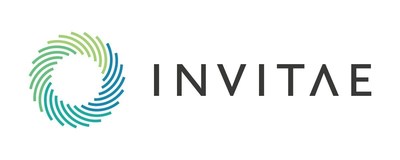
We could not find any results for:
Make sure your spelling is correct or try broadening your search.
| Share Name | Share Symbol | Market | Type |
|---|---|---|---|
| Invitae Corporation | NYSE:NVTA | NYSE | Common Stock |
| Price Change | % Change | Share Price | High Price | Low Price | Open Price | Shares Traded | Last Trade | |
|---|---|---|---|---|---|---|---|---|
| 0.00 | 0.00% | 0.0891 | 0 | 01:00:00 |
SAN FRANCISCO, June 13, 2018 /PRNewswire/ -- Researchers from Invitae, one of the fastest growing genetics companies, today published findings from the largest analysis to date of genetic testing to identify deletions and duplications involving single genes using next-generation sequencing (NGS) techniques. The study found that these changes, also called exonic copy number variants (CNVs), are present in a substantial number of patients and suggested that CNV testing should be universally used in clinical genetic testing. With few exceptions, these types of exonic CNVs are not typically detectable or reported from cytogenetic methods such as whole-genome chromosomal microarrays.

Published in the journal Genetics in Medicine, the analysis evaluated de-identified data from more than 143,000 individuals tested for a wide variety of clinical indications. Ten percent of patients who received a report of a potentially disease-causing genetic change had CNVs. Sensitive and reliable CNV testing is not a routine part of genetic testing for all genes at all clinical laboratories.
"This landmark study's findings suggest that CNVs are not just clinically significant, they are a critical piece of genetic information that can and should be delivered as part of comprehensive clinical testing," said Robert Nussbaum, M.D., chief medical officer of Invitae. "Universal CNV analysis is no longer an optional part of genetic testing. Appropriate application of NGS technology eliminates cost as a barrier to routine CNV testing, making it accessible alongside sequencing in a single test when clinicians need genetic test results to help make clinical decisions."
The data also showed that the distribution of CNVs is significant across a number of clinical specialties. While the clinical area with the highest prevalence of pathogenic CNVs was neurology (35%), hereditary cancer (8.3%), pediatric and rare disease (7.7%), and cardiology (4.7%) all showed significant prevalence rates, thereby supporting routine inclusion of CNV testing.
The large number of CNVs examined in this study provides novel insights into the biology underlying these genetic variants. "This is one of the largest datasets on intragenic CNVs available in the medical genetics community," said Swaroop Aradhya, Ph.D., senior author of this study and head of medical affairs at Invitae. "In addition to understanding their clinical prevalence, we were able to discern properties of CNVs that help us distinguish between those most likely to cause disease versus those that exist as natural variation in the human genome."
CNVs include gross deletions (losses) or duplications (gains) of DNA material. Relatively small CNVs, ranging in size from a single exon to a full gene, are often called del/dup events to distinguish them from larger CNVs detected by cytogenetics methods. CNV analysis has been historically limited to a few specific genetic conditions that were known to be often caused by CNVs. Separate assays are used to detect CNVs in these conditions, adding both time and cost to genetic testing. However, advanced NGS techniques that simultaneously detect CNVs and sequence variants on one platform with a single sample eliminate the additional time and costs of running CNV detection, making it available for routine use across all genes.
Invitae is the first commercial lab to implement high-resolution NGS-based CNV detection, which also offers superior technical sensitivity and improved gene coverage compared to traditional approaches. This difference in technology has allowed Invitae to lower the cost of testing, while still maintaining one of the most comprehensive and clinically sensitive platforms in the industry.
The Genetics in Medicine paper can be found online at: https://doi.org/10.1038/s41436-018-0033-5.
About Invitae
Invitae Corporation (NYSE: NVTA) is a genetics company whose mission is to bring comprehensive genetic information into mainstream medical practice to improve the quality of healthcare for billions of people. Invitae's goal is to aggregate most of the world's genetic tests into a single service with higher quality, faster turnaround time and lower prices.
Safe Harbor Statement
This press release contains forward-looking statements within the meaning of the Private Securities Litigation Reform Act of 1995, including statements relating to the importance of routine CNV testing. Forward-looking statements are subject to risks and uncertainties that could cause actual results to differ materially, and reported results should not be considered as an indication of future performance. These risks and uncertainties include, but are not limited to: the company's history of losses; the company's ability to compete; the company's failure to manage growth effectively; the company's need to scale its infrastructure in advance of demand for its tests and to increase demand for its tests; the company's ability to use rapidly changing genetic data to interpret test results accurately and consistently; security breaches, loss of data and other disruptions; laws and regulations applicable to the company's business; and the other risks set forth in the company's filings with the Securities and Exchange Commission, including the risks set forth in the company's Quarterly Report on Form 10-Q for the quarter ended March 31, 2018. These forward-looking statements speak only as of the date hereof, and Invitae Corporation disclaims any obligation to update these forward-looking statements.
Contact:
Laura D'Angelo
pr@invitae.com
(628) 213-3283
![]() View original content with multimedia:http://www.prnewswire.com/news-releases/invitae-study-of-143-000-patients-shows-importance-of-routinely-including-deletion-and-duplication-detection-with-sequencing-in-genetic-testing-300665398.html
View original content with multimedia:http://www.prnewswire.com/news-releases/invitae-study-of-143-000-patients-shows-importance-of-routinely-including-deletion-and-duplication-detection-with-sequencing-in-genetic-testing-300665398.html
SOURCE Invitae Corporation

Copyright 2018 PR Newswire
1 Year Invitae Chart |
1 Month Invitae Chart |

It looks like you are not logged in. Click the button below to log in and keep track of your recent history.
Support: +44 (0) 203 8794 460 | support@advfn.com
By accessing the services available at ADVFN you are agreeing to be bound by ADVFN's Terms & Conditions